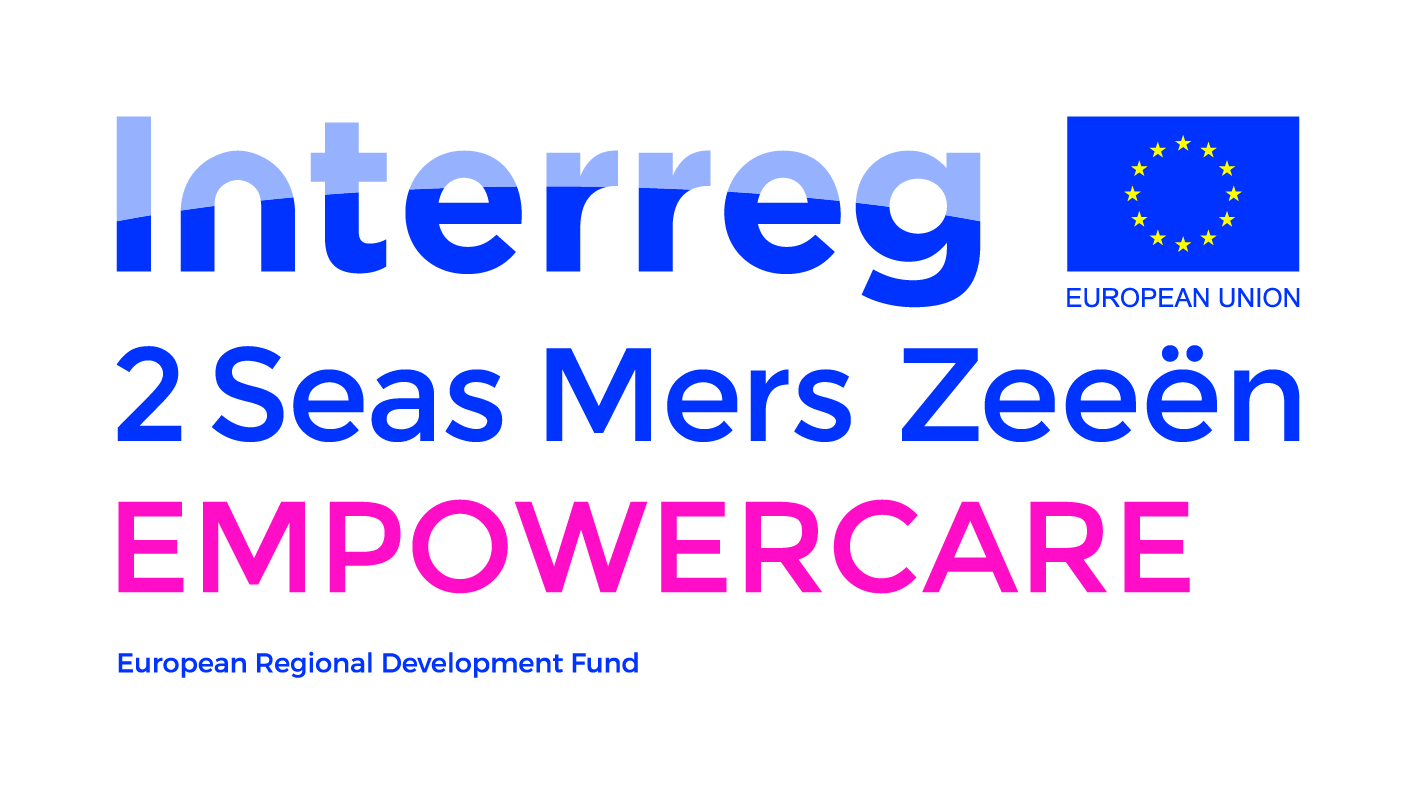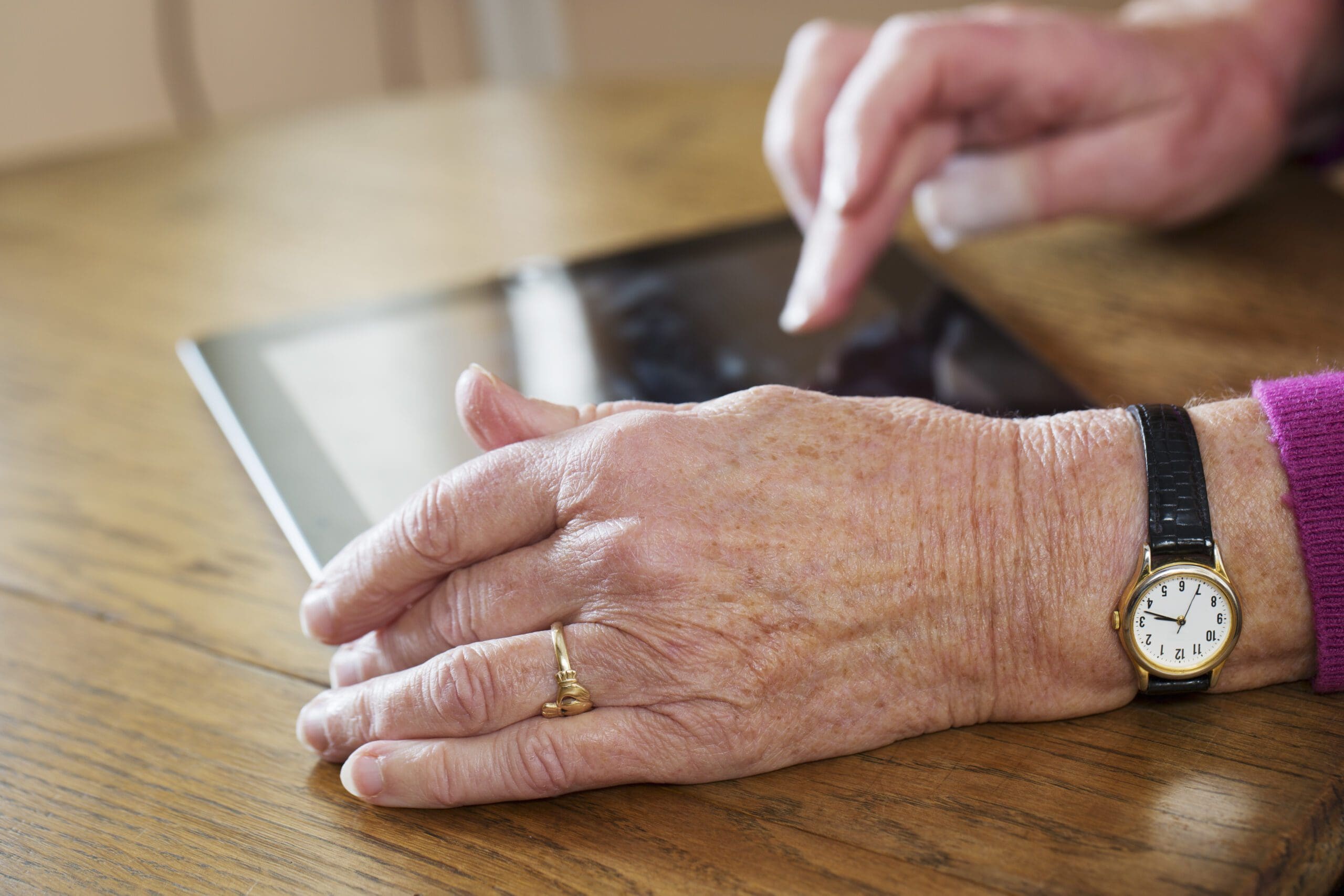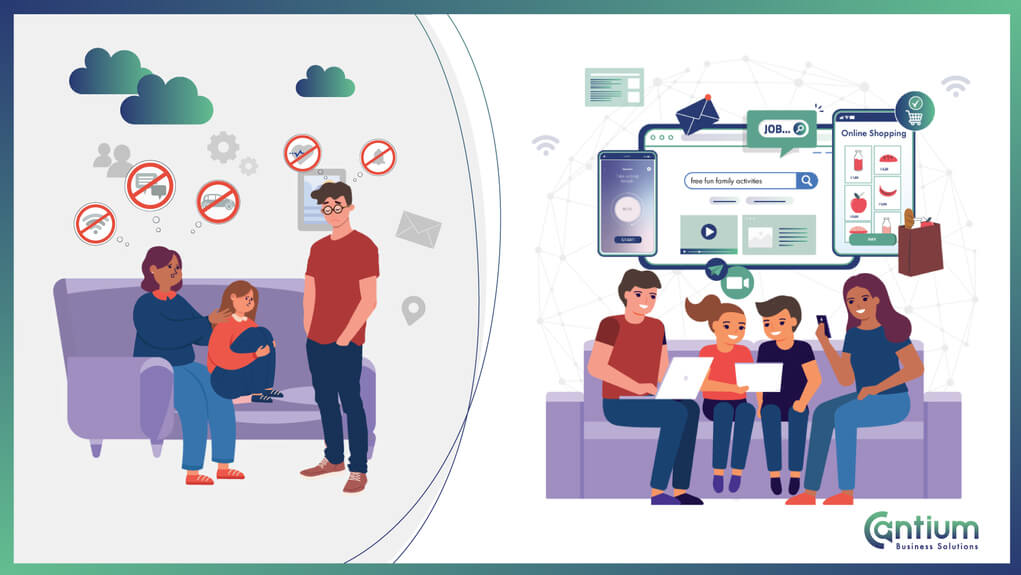"By working in partnership with Cantium, we have delivered a service to Kent residents that enabled them to feel more connected, more independent, and less socially isolated while developing new digital skills."

Customer Testimonial
“Our aim for the EMPOWERCARE project was to support people through technology and keep them connected to their community. Cantium provided a great service to maintain a range of devices including Samsung tablets and Alexa smart speakers, by delivering, collecting, and wiping them clean to ensure data privacy. The team continued to deliver the service throughout the COVID-19 pandemic despite the ever-changing regulations, which was beneficial to the residents that we were supporting.
Despite the challenges that we faced, the Cantium team helped to make sure that any issues or problems were resolved as quickly as possible and remained flexible to changes in the device loan process.
By working in partnership with Cantium, we have delivered a service to Kent residents that enabled them to feel more connected, more independent, and less socially isolated while developing new digital skills.”
Emily Paulding, Senior Project Officer, Kent County Council

Bridging the Digital Divide for EMPOWERCARE
EMPOWERCARE is a three-year technological and social innovation research project that was implemented in Kent in February 2020. Funded by the Interreg 2 Seas Programme, the project is a cross-border partnership involving 13 organisations from across the UK, France, Belgium, and the Netherlands. The project aims to create resilient communities and reduce individual frailty and loneliness through research-based solutions for those aged 65+, and those aged 50+ with at least one chronic condition.
Solving digital exclusion is one of the largest challenges that local authorities are facing today. 29% of the UK population has very low digital engagement, which includes 54% of elderly people aged 75+. However, the digital divide is even more pronounced by the increased level of online activity of digitally included people in society, who, on average, spent an extra 13 hours online per week in 2021 than they did in 2020.
The most common challenges that people face in getting online are lack of access, limited digital skills and low levels of motivation and trust. Many local authorities and healthcare providers are unsure how to start tackling these challenges, and how to provide support to citizens that make a difference in their daily lives.

The EMPOWERCARE team at Kent County Council worked with steering groups to analyse the needs of Kent’s residents that were digitally excluded. Coupled with research within the sector, and Kent County Council’s other digital inclusion projects, the EMPOWERCARE team decided that loaning devices and providing support to vulnerable citizens could have a large impact on their lives. However, the team did not have direct access to a range of digital devices, or the capacity and specialist skills to manage the project alone.
Following Cantium’s work with the Kent and Medway Public Health Digital Inclusion Programme, a recommendation was made to the team to work with Cantium.
As a long-standing ICT partner at Kent County Council, Cantium was employed to lead on the technical aspects of the programme, including:
- Procurement of the devices and implementation of cyber security protection
- Management of the tablets, including connectivity, data and delivery
- Management of the support portal, where devices can be ordered, tracked and supported
- Provision of second and third-line technical support
- Asset management and device delivery

Designing the Solution
Kent’s EMPOWERCARE project team are working with organisations that are already supporting their target groups, such as AGE UK and other care providers in Kent. These organisations were able to directly refer citizens to the project for inclusion within this scheme.
By working in partnership with Kent’s EMPOWERCARE project team, we understood their target group’s needs, and together we decided that tablet devices were best suited to their goals. We also agreed on a build for these devices, which included deciding which applications were included as standard on the device, which were available to download, and which sites should be blocked and inaccessible.
We then designed a call and data plan for the residents that enabled them to attend health and other service appointments online via video call and use apps and websites to support positive health and wellbeing choices. The tablets and data plans also enabled people to access educational resources online, helped reduce social isolation by allowing them to stay in contact with others, as well as supporting them to learn digital skills and become more comfortable with online services.
Finally, we implemented a management portal where devices could be ordered, produced, shipped, and tracked. The portal was also used to log support tickets and report devices as stolen or lost.

Cantium’s Digital Inclusion project team worked closely with the Council over a 12-month period to design and deliver this digital inclusion programme. By working in close partnership, we better understood the Council’s requirements, user base and user requirements. This meant that Cantium’s team were able to provide tailored support to the Council to overcome any issues quickly to ensure the project’s success.
The EMPOWERCARE project team also provided Digital Ambassadors that supported people on a 1-1 basis, helping them to learn how to use the tablet and use it to make tasks easier in their daily life. User-friendly guides and illustrative materials were also provided to the people they supported to set up the tablet and start to use it on their own.

The Challenge of the Digital Divide
Working with older people and vulnerable residents means that extra care and attention must be taken across the entire project. For most people, modern-day delivery services include package tracking and regular delivery or status updates. However, the digitally excluded citizens that this project supported did not have access to the same technology or an understanding of these delivery services.
“Device delivery is an important area to get right when working with people we support who have mobility issues and other related needs. Often, they need extra time to get to the door, or need to be kept informed about their delivery time so they can be available to receive the device. Regularly reviewing this process is essential to ensure the success of the project, and the best possible customer experience. Utilising a private courier service rather than a parcel delivery company is an example of how to ensure that the people we support are given enough time and care to receive their devices as early as possible.”
Sally Martin, Project Co-ordinator, Kent County Council
Amazon Alexa devices were later added to the project scope as devices shared with residents that have WiFi installed in their homes. Adding these devices to the project enabled citizens to learn about voice-controlled devices and use them confidently and easily to contact friends and family. The devices were also used by the Council’s Technology Facilitators and Occupational Therapists to support clients by adding new skills to the devices. For example, people could ask Alexa what to do when they are feeling stressed, and the therapists programmed responses that would provide the correct advice and guidance.

The Results
Students at Canterbury Christ Church University are analysing the results for all 13 EMPOWERCARE project teams and partners on behalf of the Interreg 2 Seas Programme.
EMPOWERCARE aims to deliver:
- An empowerment strategy to deliver what matters to individuals and communities in order to manage their own care
- A package of resources to enable transformation of the workforce – a technology blueprint on initiatives and technologies that support enablement at individual and community level
The Kent County Council EMPOWERCARE project team provided loan tablet devices, where the main goals were to enable citizens to:
- Attend health and other service appointments online via video call
- Use apps and websites that support positive health and wellbeing choices
- Access educational or therapeutic resources and services online
- Stay in contact with others and reduce social isolation
- Reduce social contact and help to reduce the spread of COVID-19, e.g. Online shopping or banking
- Learning digital skills and getting more comfortable with online services.
Approximately 50% of participants were supported on a 1-1 basis. The others engaged with EMPOWERCARE via attendance at one of 19 group sessions that were held in libraries and community hubs across the county.

Overall, the feedback that the team received has been positive. Comments included:
“The scheme is a very good idea as it allows people to overcome their fears and learn how to use them, thank you to all the team for helping us.”
“They [Samsung Tablets] have been helpful in enabling us to experience how they work; I think we may purchase one in the future.”
“The tablet, together with the help of the volunteer, made me realise how much I can do with a smart device; I am much more confident in using tech now and will be purchasing a tablet.”
Following this device loan period, several of the Council’s supported people have reported increased confidence in using digital devices and aims to make better use of their smartphones to access the internet.
The most common applications used, discussed, and supported were email, web browsing, maps, and social media sites, alongside web conferencing and video calling.
Overall, the digital device loan scheme has been a success for the Council. Kent residents and the people supported by the Council have started to gain confidence in using digital devices, and the project has provided valuable insight used to inform future digital inclusion projects in Kent.




